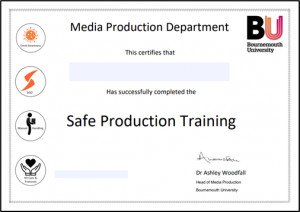The Brightspace Awards tool follows the concept of gamification and provides a system by which a certain achievement, or collection of achievements, can be acknowledged and recognised by issuing a badge or certificate as a form of micro-credential accredited by the Department or issuing organisation. Badges and certificates can be automatically generated using release conditions, so that when the set conditions are met the badge or certificate is released.
Gamification is the concept of introducing an element of competition or a reward into events. You may not have noticed, but this is all around us and we are all playing. The supermarket cards (vouchers) or coffee shop loyalty cards (10th cup free) that we carry are all examples of gamification.
It is important to clarify that gamification does not call for the explicit use of games, or some notion of ‘play’ or ‘playtime’. Gamification refers to the use of a pedagogical system that was developed within gaming design, but which is implemented within a non-game context as a means of improving engagement.
For more information, read these articles:
JISC: Gamification and Games-Based Learning
Advanced HE: Gamification and Games Based Learning
The Department of Media Production from the Faculty of Media and Communication (FMC) wanted a method with which to record which self-paced specialist courses students had completed as part of their Media Production Programme and it was decided to explore the potential use of the Awards tool available in Brightspace.
Subsequently, the Media Skills Passport was setup in Brightspace as a module within the Department for Media Production community, the module consisting of three sub-modules and subject sections. Release conditions were used to force students to work through the content in a
On completion of each subject a badge was automatically awarded, then when all badges and conditions had been achieved, a certificate for that sub-module was automatically awarded.

Student names and date of completion are automatically entered onto the certificate when awarded.
Students are then able to download their digital awards and embed them into websites, documents or print out as and when required.
At the time of writing, 546 students have achieved the Safe Production Certificate, 326 students have achieved the Kit Safety Certificate and 278 have achieved the Mains Lighting Certificate. A total of 270 students have achieved all three Certificates.
Overall, the use of awards and release conditions has been very successful in delivering specialist mandatory teaching and outcomes for the Department and has been well received by students and staff, and some Programmes are now asking students to attach their Safe Production Certificates to risk assessments, which is a validation that the content and testing is considered good value.
It is also interesting to note that the Media Production Passport has generated interest in the MA Digital Effects Programme which shares many of the same production processes.
You can read the full case study HERE under the Assessment and Feedback section.
For further help, contact your Faculty Learning Technologist:
- BUBS: bubslearningtechnology@bournemouth.ac.uk
- FMC: fmclearningtechnology@bournemouth.ac.uk
- FST: scitechlearningtechnology@bournemouth.ac.uk
- HSS: hsslearningtechnology@bournemouth.ac.uk
- Doctoral College: pgrlearningtechnology@bournemouth.ac.uk







